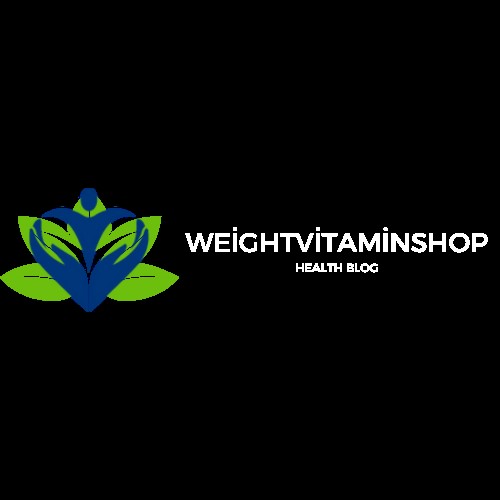
Contents
Introduction:
As responsible pet owners, we strive to provide our furry companions with the best care possible. One important aspect of their well-being is ensuring they receive proper nutrition, including the essential vitamins. Just like humans, dogs require certain vitamins to maintain their overall health and vitality. However, with the abundance of information available, it can be overwhelming to understand which vitamins are necessary, safe, and beneficial for our beloved pets. In this guide, we will explore common questions surrounding vitamins for dogs, including concerns about Vitamin D, the necessary vitamins for dogs, the use of Vitamin C, and the safety of non-staining supplements.
1. Is Vitamin D Bad for Dogs?
Vitamin D is a crucial nutrient that plays a vital role in various bodily functions for both humans and dogs. However, excessive amounts of Vitamin D can have adverse effects on dogs. When consumed in excess, it can lead to vitamin D toxicity, a potentially life-threatening condition characterized by an imbalance of calcium and phosphorus in the body. Symptoms of Vitamin D toxicity in dogs may include vomiting, loss of appetite, increased thirst, excessive drooling, weight loss, and even kidney damage.
To ensure your dog’s safety, it is important to consult with your veterinarian before supplementing Vitamin D or starting any new dietary regimen. Your vet can determine the appropriate dosage and guide you on providing a balanced diet that meets your dog’s nutritional needs.
2. What Vitamins Do Dogs Need?
Similar to humans, dogs require a range of vitamins to support their overall health. These essential vitamins include:
a) Vitamin A: Important for maintaining healthy vision, cell growth, and immune function. Dogs typically obtain Vitamin A from their diet, particularly from liver, fish oils, and certain vegetables.
b) B Vitamins: This group of vitamins, including thiamine (B1), riboflavin (B2), niacin (B3), pyridoxine (B6), and cobalamin (B12), are essential for energy production, nerve function, and a healthy coat. They are typically present in a balanced commercial dog food diet, but supplements may be required in certain cases.
c) Vitamin C: Unlike humans, dogs can produce their own Vitamin C, so it is not considered an essential dietary component for them. However, under certain circumstances, such as illness or stress, supplemental Vitamin C may offer immune system support. Always consult with your vet before introducing Vitamin C as a supplement.
d) Vitamin D: Vitamin D helps regulate calcium and phosphorus levels, promoting bone health and proper nerve and muscle function. Dogs naturally produce Vitamin D through the exposure of their skin to sunlight, but additional supplementation may be necessary in certain cases.
e) Vitamin E: It acts as an antioxidant, protecting cells from damage. Sources of Vitamin E for dogs include vegetable oils, nuts, and seeds.
Remember, while these vitamins are essential, it is important to provide them in appropriate quantities as recommended by your veterinarian. Over-supplementation can lead to adverse effects, making it crucial to tailor your dog’s diet to their specific needs.
3. Can Dogs Take Vitamin C?
Vitamin C is not an essential nutrient for dogs since they are capable of producing it in their bodies. However, in times of stress, illness, or certain health conditions, dogs may benefit from supplemental Vitamin C. It can potentially support their immune system and aid in the recovery process. Always seek advice from your veterinarian before administering Vitamin C, as excessive amounts can cause digestive upset or other complications in some dogs.
4. Are Non-Staining Supplements Safe for Dogs?
Non-staining supplements are popular among pet owners who wish to enhance their dog’s diet without worrying about potential damage to carpets or furniture. These supplements typically contain ingredients like glucosamine, chondroitin, and omega-3 fatty acids, which aim to promote joint health, improve coat condition, and offer other benefits.
Non-staining supplements are generally safe for dogs when used according to their recommended dosage. However, as with any nutritional supplement, it is essential to consult with your veterinarian before incorporating them into your dog’s routine. Your vet can assess your dog’s specific needs, offer guidance, and ensure that the chosen supplement is suitable and safe for your furry friend.
Conclusion:
Understanding the importance of vitamins for dogs is crucial in providing them with optimal health and wellness. While Vitamin D toxicity can pose risks, ensuring the appropriate amount of essential vitamins like A, B, C, D, and E is essential for their overall well-being. Remember to consult with your veterinarian before introducing any new supplements, as they can guide you on the appropriate dosage and help tailor a balanced diet plan best suited to your dog’s individual needs. With proper care and attention, you can ensure your furry companion leads a healthy and vibrant life.
Elevate your pet’s well-being with Pawbiotics – explore reviews, learn about canine vitamins, and discover safe supplements. Uncover valuable information on creating a balanced diet for your furry friend. For more, visit the ‘Pawbiotics’ website. Visit the Pawbiotics Product Page.

